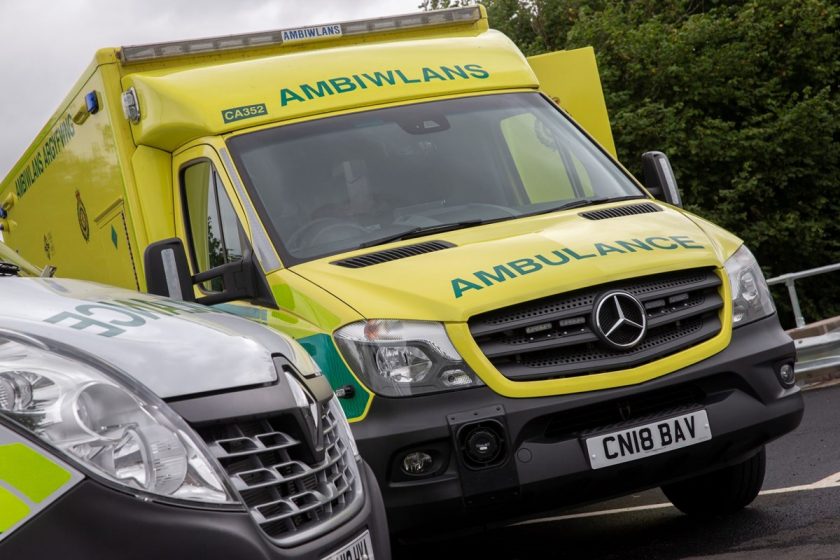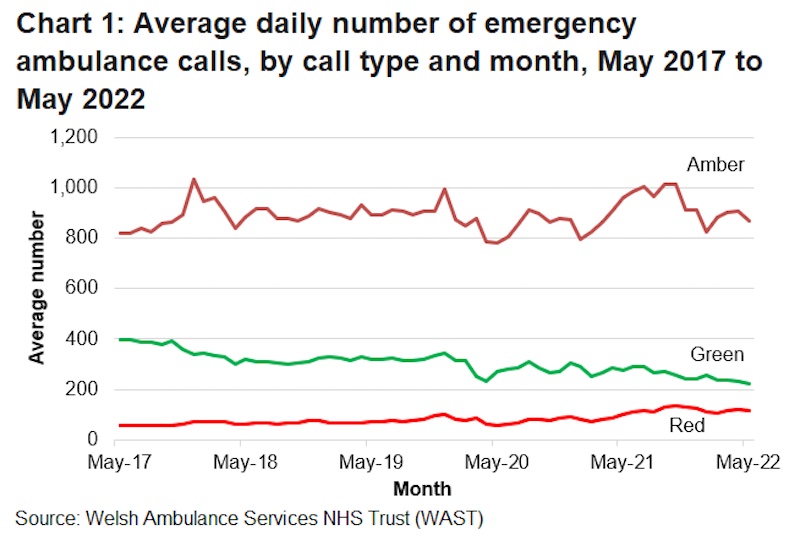Extra £3m announced in bid to recruit more emergency ambulance staff to improve response times

£3m is to be invested in recruiting more emergency ambulance staff to improve response times for the most seriously ill or injured.
This additional funding will enable the Welsh Ambulance Services NHS Trust (WAST) to recruit around 100 additional frontline staff and introduce a new ‘Cymru High Acuity Response Unit’ (CHARU) service.
The CHARU service will seek to improve outcomes for people who have suffered cardiac arrest.
The additional staff will help to manage increased demand for emergency care and partially mitigate some of the complex wider system challenges which continue to place intense pressure on emergency care staff and services.
These pressures are being intensified by a range of local and national factors including challenges with patient flow through the hospital system, as well as staffing constraints.
Last month it was reported that throughout May, almost 38,000 emergency calls were made to the ambulance service.
The figures were released as part of the monthly stats on the NHS performance in Wales.
An average of 1,207 calls per day, a decrease of 55 (4.3 per cent) calls on average per day than the previous month and 130 (9.7 per cent) fewer calls on average per day than the same month last year.
Calls to the ambulance service are categorised as red (immediately life-threatening), amber (serious but not life-threatening) or green (non-urgent). An average of 116 red calls were made per day in May.
This is the twelfth month in a row where on average there were more than 100 immediately life-threatening calls made each day.
The target is to attend 65 per cent of red calls (immediately life-threatening – someone is in imminent danger of death, such as a cardiac arrest) to have a response within 8 minutes.
However in May, 54.5% per cent of emergency responses to immediately life threatening (red) calls arrived within 8 minutes.

The Welsh Government has six goals for an ‘Urgent and Emergency Care Programme’ which has been established to help improve access to urgent and emergency care and we have already made £25m recurrent funding available to support delivery of programme priorities.
This is along the £145m made available to Regional Partnership Boards, as part of a Regional Integration Fund, to be used to help people avoid admission to hospital or leave when they are ready.
The additional emergency ambulance staff will be deployed in a targeted way across Wales in the areas which are under greatest pressure and where there is the greater clinical need.
Commenting on the additional funding, Health Minister Eluned Morgan said: “We are providing this additional funding as we recognise the immense pressures the ambulance service is under to respond to the most seriously ill and injured people.
“By increasing staff capacity in the short term we can improve response times and ensure better care for people who have been waiting too long for an ambulance.
“Our Six Goals for Urgent and Emergency Care programme will support an increase in staffing in crucial areas in the medium term and help staff to deliver the right care, in the right place, first time whenever possible.”
Jason Killens, Chief Executive of the Welsh Ambulance Service, added: “Extreme pressure remains across the urgent and emergency care system, and we continue to work with partners to find solutions to the complex and long-standing issues.
“In the meantime, we’re growing our workforce to put us in the best possible position to meet rising demand and have already recruited to more than 260 frontline posts in the last two years.
“An additional 100 frontline posts is going to bolster our capacity even further, and we’re grateful to Welsh Government for funding this and the pioneering new CHARU initiative, which we hope will improve the outcomes for our most critically ill patients.”
Spotted something? Got a story? Email: [email protected]
Latest News
